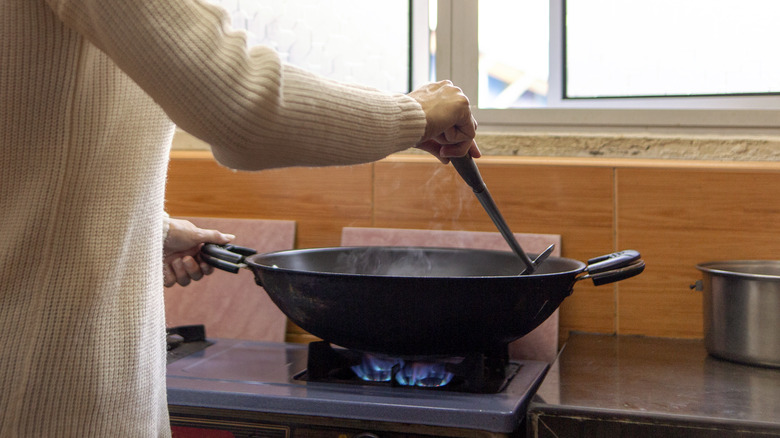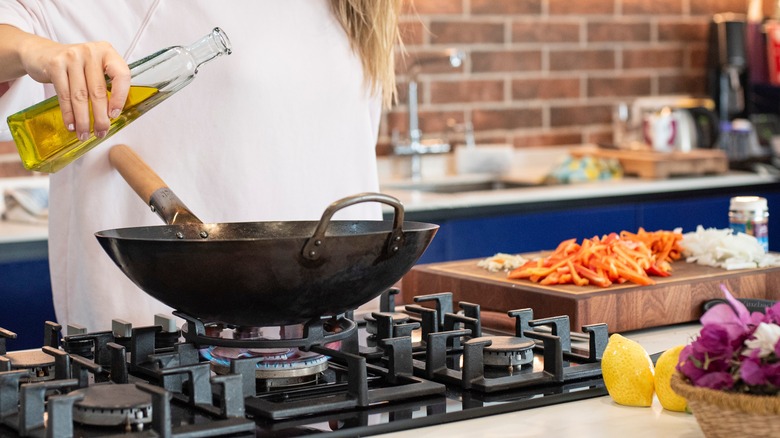The Type Of Sauce You Should Never Try Making In A Wok
While woks are most often associated with making a tasty stir-fry, these cookwares are actually quite versatile, and they can take the place of frying pans in many instances. However, there are certain sauces that you should avoid preparing in a wok if you want to be fully satisfied with the end result. When you're planning on whipping up classic eggs benedict with hollandaise or any other dish featuring a dairy-based sauce, woks are not recommended.
Woks are often made from cast iron or steel, much like other types of cookware you might find in the kitchen. However, they're usually much thinner, which means the material becomes extremely hot rather quickly. This is in contrast to the cooking methods required for most dairy sauces, which typically call for low and slow heating. Accordingly, employing a wok to make something like hollandaise, bechamel, or alfredo can significantly affect the texture of the finished sauce and potentially leave you a little dissatisfied with your culinary creation.
What can happen when you make a dairy sauce in a wok?
Dairy reacts badly when exposed to high temperatures, so when subjected to the high heat of a wok, a dairy-based sauce is likely to curdle, which can lead to a separation of liquid and proteins. It can result in unwanted textures like lumpiness and wateriness that detract from the enjoyment of your alfredo sauce with linguine recipe. While it's possible to amend a broken hollandaise sauce by adding another egg yolk, choosing the right cookware will hopefully allow you to avoid this pesky problem altogether.
In place of a wok, alfredo, hollandaise, and other dairy sauces are best prepared in a saucepan featuring a non-stick coating. You can also use a saucepan constructed of cast iron, provided that it's coated in enamel. These materials are excellent at retaining warmth, which is ideal for gently heating a sauce over low but consistent heat.
What about other sauces?
While cast iron woks are sturdy, dependable kitchen tools, they're not suited to every ingredient. Remember that you should be careful about cooking acidic foods in cast iron, as they can cause the metal to break down and transfer a metallic flavor to whatever you're cooking. That means any sauces consisting mainly of tomatoes, such as vodka, marinara, and Bolognese, should be approached cautiously. In this case, only use a cast iron wok if you have a brief cooking time (basically less than 45 minutes). The same rules apply to any sauce containing citrus juices, including lemon butter and orange sauce.
On the other hand, lots of sauces are well suited to wok cooking. Fish sauce is a mainstay of stir-fry preparations thanks to its umami-rich flavor profile and delightful brininess. Soy sauce is another wok-friendly selection perfect for adding depth of flavor to vegetables, meats, noodles, and other ingredients. Hoisin peanut sauce offers a nice balance of sweet and savory flavors, and it also makes a great accompaniment to woks. By pairing your wok with the very best sauce selections, you can rest assured of optimal flavor and consistency.


